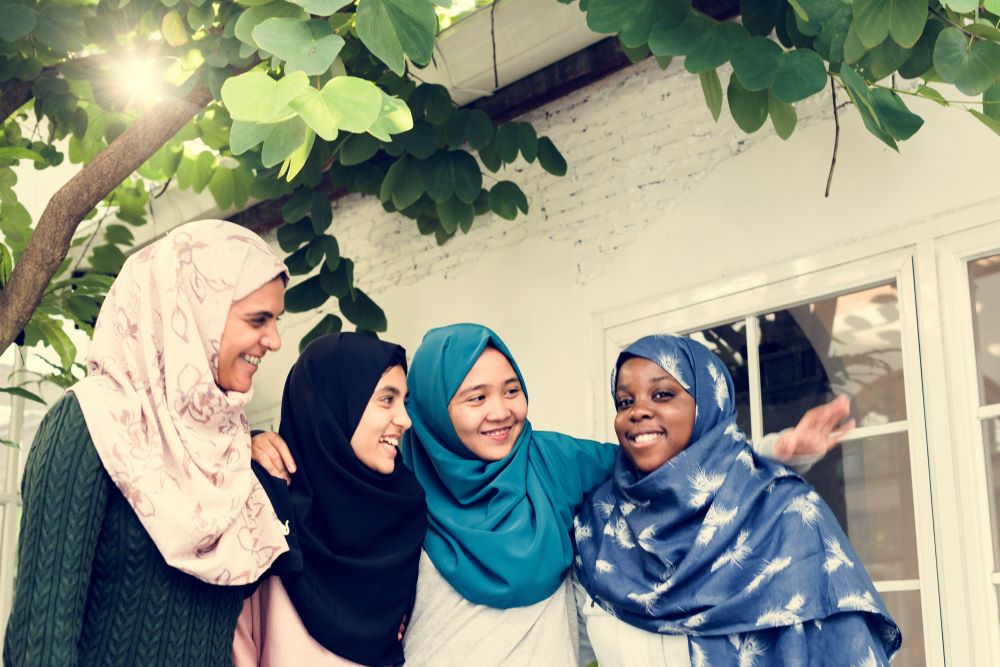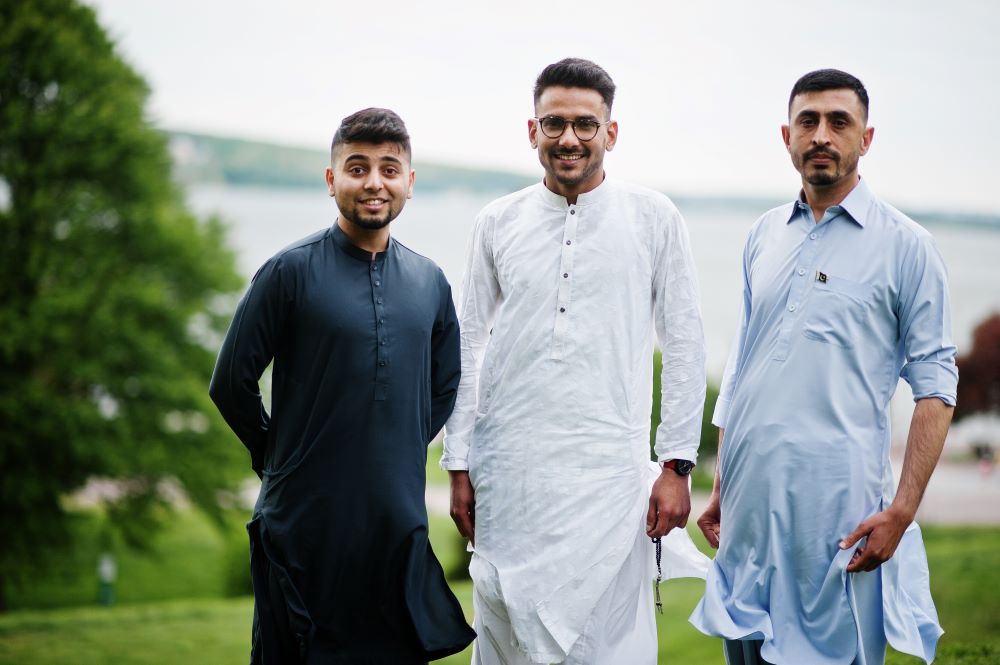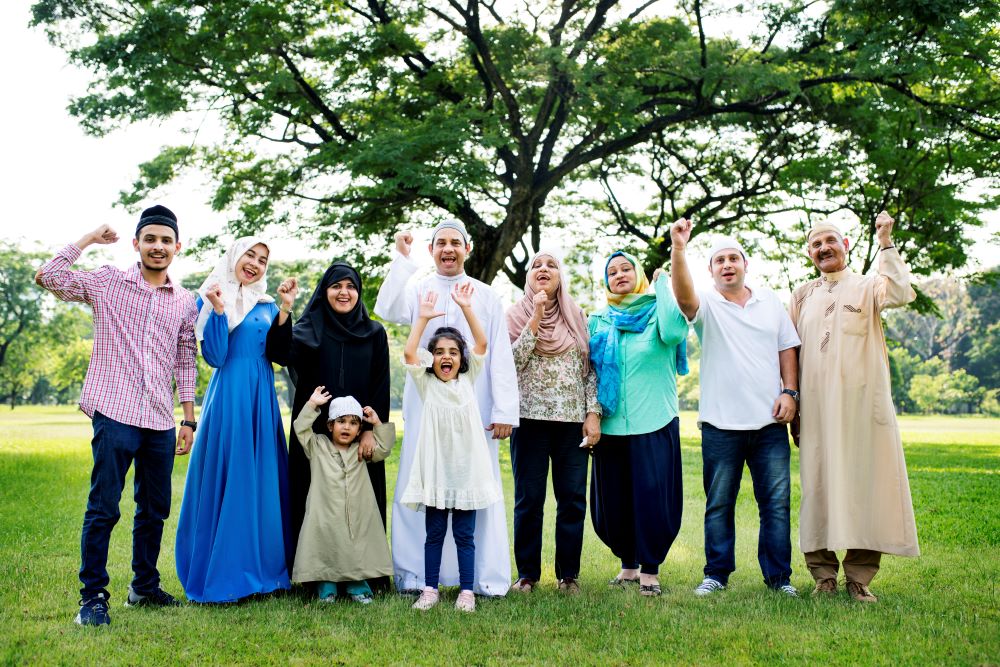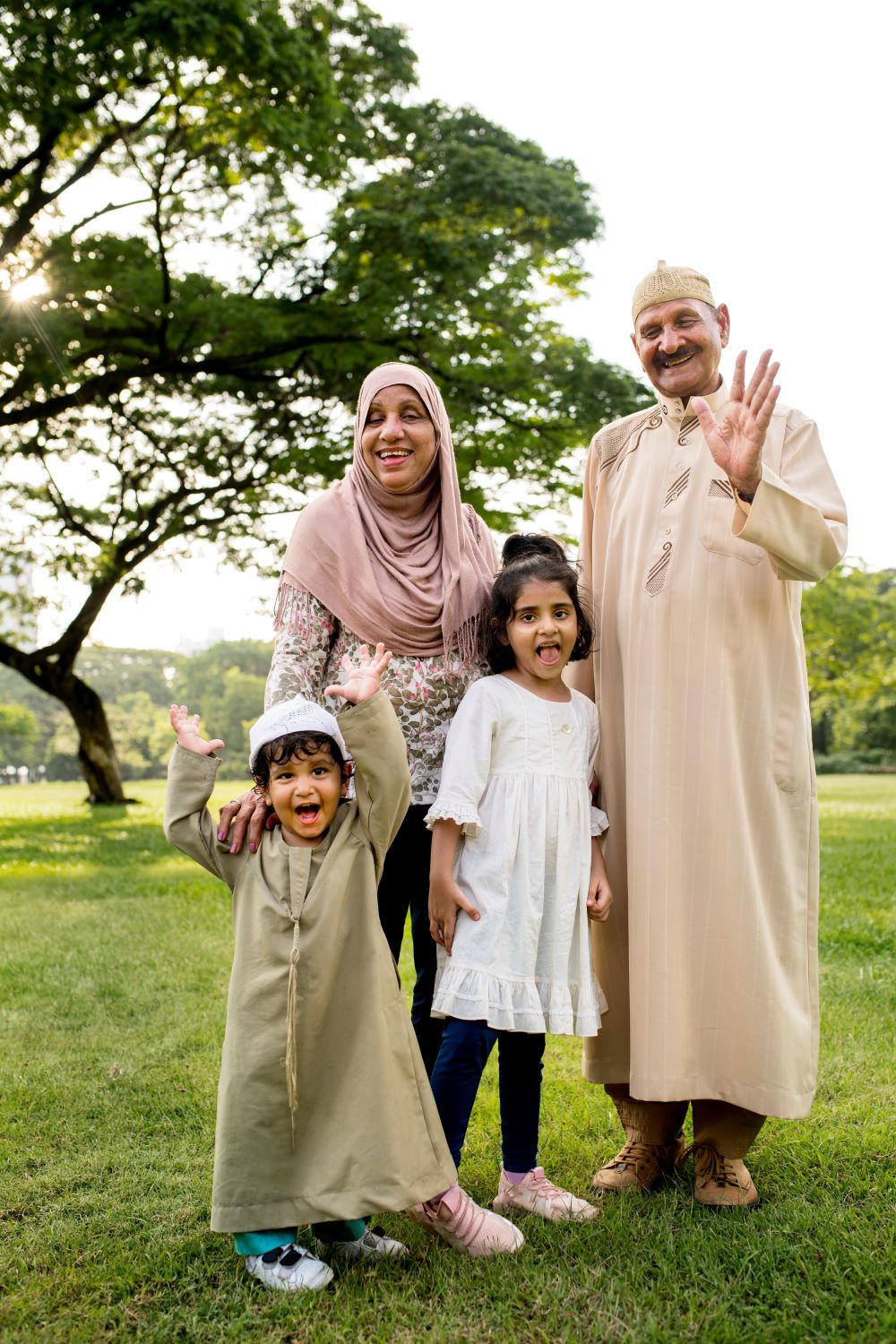Attending a Muslim wedding comes with certain customs and traditions that are important for guests to understand and respect. One of the key concerns for attendees is dressing appropriately for the occasion.
Modesty is highly regarded in Islamic culture, and this reflects clearly in the expectations for guest attire at Muslim weddings. Men and women are advised to select outfits that are conservative in nature, ensuring that they cover the body in a respectful manner.

When selecting what to wear to a Muslim wedding, guests should opt for clothing that is not only modest but also comfortable and fitting for a joyous celebration. Long pants, dresses, and skirts are suitable for such occasions, with women often expected to cover their heads in certain ceremonies.
Bringing along a scarf can be a considerate gesture. It is encouraged to wear vibrant and celebratory colors, avoiding anything too flashy or attention-grabbing that might detract from the wedding festivities.
Check out these other popular posts:
Understanding Muslim Weddings

Muslim weddings are a beautiful tapestry of culture, heritage, and religious practices. Generally, a Muslim marriage ceremony, termed the nikah, is an essential part of Islamic tradition. The nikah is often a blend of rich Muslim wedding traditions that may vary by region and family.
Cultural Significance
Each wedding incorporates aspects of the couple’s culture and family practices. Cultural attire, specific rituals, and the exchange of vows may align closely with local customs.
Nikah – The Marriage Contract
Central to the ceremony is the nikah, a marriage contract signed by the couple. It’s a solemn and sacred event, typically involving the recitation of the Quranic verses and a stipulated mahr – a gift from the groom to the bride as part of the marriage agreement.
Mahr – A Bridal Gift
- Amount: Agreed upon prior to the ceremony
- Form: Can be cash, property, or other valuable items
- Purpose: Symbolizes security and respect for the bride
Incorporating Traditions
- Islamic Teachings: Guides the ceremony, focusing on simplicity and worship
- Attire: Modest Wedding attire including a headcover for women, depending on the family’s adherence to tradition
- Celebration: Post-nikah festivities may include food, music, and dance, but usually adhere to religious guidelines
Muslim weddings emphasize not just the union of two individuals but also that of their families, fostering a sense of community and lifelong partnership within the bounds of their shared religion and heritage.
Pre-Wedding Rituals and Engagement

In the tapestry of Muslim wedding traditions, pre-wedding rituals serve as a rich cultural prelude, setting the stage for the marriage contract and engagement festivities. These ceremonies, laced with symbolic gestures and deep-seated customs, are pivotal to honor the union to come.
Marriage Contract and Mahr
The Nikaah-Namah represents the formal marriage contract central to Islamic matrimonial rites. It outlines the rights and responsibilities of both the bride and the groom. An integral part of this contract is the Mahr, a mandatory gift from the groom to the bride, which symbolizes respect and acknowledges the bride’s independence. This gift could take various forms, from money to property or a meaningful present.
Engagement Ceremonies and Traditions
Engagement ceremonies in Muslim culture are as diverse as the people who celebrate them. Rituals such as the Haldi or Manjha involve the application of turmeric paste to the bride and sometimes the groom, signifying beautification before the wedding.
Another noteworthy tradition is the Arsi Mushaf, where the couple is allowed to glimpse at each other through a mirror placed between them, symbolizing their union. These pre-nuptial customs are steeped in heritage, bringing friends and family together in anticipation of the wedding day.
Appropriate Attire for Guests
When attending a Muslim wedding, it is paramount for guests to wear clothing that is both respectful and in accordance with Islamic customs. Attire should cover the body modestly, and guests should consider the cultural significance of the event.
Dress Code for Men
Men are advised to select clothing that is tasteful and honors the sanctity of the occasion. Long pants and a collared shirt are standard and show respect for the event. It is also appropriate for men to wear traditional clothing such as a sherwani if the wedding is more traditional.
The choice of fabric should be modest, avoiding overly flashy or casual textures like denim. Shoes should be formal, complementing the overall attire.
Dress Code for Women
Women’s wedding attire calls for a balance between elegance and modesty. Outfits like a long dress, lehenga, sari, sharara, or ghararas, ideally with sleeves, are suitable for the occasion. A hijab or scarf is often worn, especially if the ceremony is held in a mosque.
When choosing colors, white dresses may be avoided as they are traditionally reserved for the Muslim bride, while red dresses are often worn by brides in some cultures. Sarees are also a popular choice, embraced for their modesty and the richness of their fabric and texture. Shoes should be modest and closed-toe.
Wedding Day Customs

Muslim wedding customs are rooted in religious traditions and social customs. The wedding typically features two main events: the “Nikah,” which is the official religious marriage ceremony, and the “Walima,” the wedding reception that celebrates the consummation of marriage.
The Nikah Ceremony
The Nikah is a pivotal moment in a Muslim wedding and constitutes the Islamic marriage contract. It takes place at a wedding venue that can range from a mosque to a private home, depending on the couple’s preference.
An officiant, commonly an imam, presides over the ceremony. During the Nikah, the couple expresses their consent to marry by saying “qubool hai”, meaning “I accept,” three times. The Nikah solidifies their union in the eyes of both religion and the community.
Walima and Celebration
Following the Nikah is the Walima, the wedding banquet that is a massive celebration reflecting the couple’s joy. The wedding planner or wedding planning team often takes great care to accommodate the joyous nature of the event while respecting religious guidelines.
For instance, traditional Muslim weddings do not include alcohol, in adherence to Islamic tenets. The Walima is also an opportunity for families to display their hospitality and for communities to come together in support of the newlyweds.
Respecting Traditions and Etiquette

At Muslim weddings, it is important for guests to dress conservatively as a sign of respect for both the traditions of the community and the religious aspects of the ceremony. Guests should aim for attire that adequately covers the body to maintain modesty, in line with Islamic tenets outlined in the Quran.
For women, this typically means avoiding outfits with bare arms or deep necklines. Instead, they might opt for a lehenga with a matching top that is not form-fitting and comes with a veil or shawl to drape over their shoulders and arms. Accessories can include tasteful jewelry that complements the wedding look without being overly extravagant.
Men are encouraged to wear long-sleeved shirts and full-length trousers. A sherwani, which is a long coat-like garment worn in South Asian culture, is also an appropriate choice at an Islamic wedding. In some cases, when the ceremony takes place at a mosque, both genders may need to ensure that their heads are covered—women with a scarf and men with a cap, consistent with the custom.
Gender segregation may be practiced at some Muslim weddings, with men and women celebrating in separate areas. Guests should be attentive to such arrangements and participate accordingly to honor the customs of the hosts.
In all, when attending Muslim weddings, guests should prioritize outfits that reflect the cultural and religious importance of modesty, blending in harmoniously with the ethos of the South Asian community involved in the celebration.
Gifts and Offerings
When attending a Muslim wedding, guests often face the question of what gifts to present. It is traditional to offer something meaningful, as these gifts are not only a token of celebration but also a gesture of good will towards the couple’s new life. Here are some appropriate gift ideas:
Cash Gifts: Monetary gifts are commonly given at Muslim weddings, often enclosed in a decorative envelope. Certain cultures call this “savaqah,” which symbolizes prosperity and luck.
Religious Texts: A beautiful copy of the Holy Quran can be an especially poignant gift, symbolizing spiritual guidance and blessings for the couple’s journey in marriage.
Home Goods: Household items, whether practical or ornamental, are typically well-received as they contribute to the couple’s new household. Ensure these gifts align with Islamic values and the couple’s taste.
Jewelry: Offering a piece of elegant jewelry is a thoughtful way to commemorate the special day while providing the couple with a keepsake.
Gift-giving requires sensitivity and respect for Islamic traditions. Avoid items that may not align with Islamic customs, such as figurines or alcohol-related products. When in doubt, referring to a Muslim wedding planning guide can aid decision-making.
Remember, the aim is to honor the sanctity of the “nikah” or marriage ceremony, and thoughtfully selected gifts will reflect a guest’s respect for this sacred union.
Frequently Asked Questions

What is appropriate attire for female guests at a Muslim wedding?
Female guests are expected to dress modestly. This means outfits should cover the arms, legs, and chest. Long dresses or skirts, along with a blouse that is not low-cut, are suitable options. It is also advisable to wear a scarf or shawl to cover the head, especially during the ceremony.
What should male guests wear to a Muslim wedding?
Male guests should wear attire that is both respectful and modest. This typically includes long trousers and a long-sleeved shirt. A suit is also appropriate, and conservative colors are preferred. Clothing should be neat and avoid being too casual.
Is it acceptable to wear black to a Muslim wedding?
Generally, black should be avoided at Muslim weddings as it may be considered a color of mourning. Guest attire should respect the culture’s norms, which often encourage more festive and celebratory colors.
Are there any specific color recommendations for guests attending a Muslim wedding?
Yes, guests are encouraged to choose celebratory colors such as gold, green, purple, blue, and pink. These colors contribute to the festive atmosphere of the wedding. However, it is advised to steer clear of black and red, as they may be viewed as inappropriate.
What should a non-Muslim wear when attending a Muslim wedding ceremony?
A non-Muslim attending a Muslim wedding should also dress modestly. It is a sign of respect to adhere to the cultural expectations, so covering up, avoiding flashy or revealing attire, and opting for subtler, more conservative choices is best.
What type of gift is suitable to bring to a Muslim wedding?
Gifts at a Muslim wedding should be thoughtful and respectful. Monetary gifts are common and appreciated. Items that are practical and beneficial for the couple’s new life together, or a charitable donation in the couple’s name, are also considered suitable.
Related posts:
Effortless & Elegant: 15 Bridesmaid Hair Ideas That Steal the Show
What to Wear to a Civil Wedding: Best Outfit Ideas for Guests
What to Wear to a Sikh Wedding: A Guide to Traditional Attire and Etiquette
15 Easy Bridesmaid Hairstyles for Your Dream Wedding
20 Stunning Half Up Half Down Braid Hairstyles for Bridesmaids
30 Timeless First Dance Songs for Every Wedding Style

Serena & Dominic are a married couple and parents to 3 wonderful children. They plan weddings, run multiple small businesses, and curate wedding events.
By giving you everything you need to make your dream wedding attainable, you can eliminate stress, get the ‘wedding glow,’ and focus on spending this rocking day with the person you adore. Discover their podcast for more information




